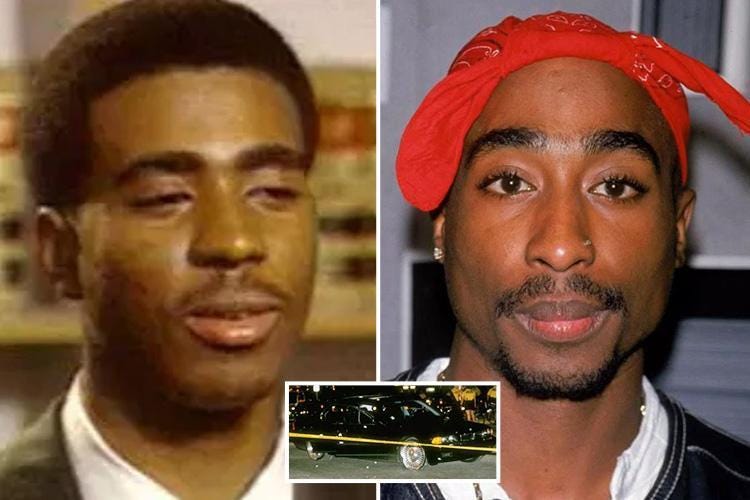Orlando "Baby Lane" Anderson: A Complex Life and Controversial Legacy
The man that supposedly shot Tupac Shakur
Orlando Tive "Baby Lane" Anderson, born on August 13, 1974, in Compton, California, is a figure whose life was marked by a mix of aspirations, challenges, and controversies. This summary delves into his background, his association with the infamous South Side Crips, and the pivotal events leading up to his untimely death.
Early Life and Background
Orlando was raised in Compton by his great-grandmother Utah, surrounded by a supportive family despite his parents' split. A conscientious student, he attended Taft High School, transferring to Dominguez Hills for his senior year. He graduated in 1992, maintaining a life away from drugs and alcohol, despite living in an area known for gang activity.
Family and Aspirations
By 1996, Orlando had moved to Lakewood with his partner, Rasheena Smith, and their two daughters. He also had a daughter with another woman. Orlando dreamed of a career in the music business, founding Success Records with his half-brother Pooh.
The Tupac Shakur Incident
On September 7, 1996, Orlando was involved in a confrontation with rapper Tupac Shakur in the MGM Grand lobby, just hours before Tupac was fatally shot. An informant claimed Orlando was pointed out to Tupac as a rival Crip, leading to the fight. Although named a suspect in Tupac’s murder, Orlando denied involvement and was never charged.
Legal Troubles and Business Ventures
In October 1996, Orlando was arrested for a different murder but was released due to insufficient evidence. Despite being known as “the man who shot Tupac,” he continued his music aspirations, establishing a studio for Success Records with money allegedly from a lawsuit involving Death Row Records.
Final Days and Death
On May 29, 1998, Orlando and his friend, Michael Reed Dorrough, were involved in a fatal gunfight at a Compton car wash over a drug debt dispute. Orlando and two others were killed, and Dorrough was later convicted and sentenced to three life terms without parole for his involvement.
The Aftermath and Legacy
Orlando's life and death highlight the complexities of gang culture and its impact on individuals and communities. His association with the South Side Crips and the infamous confrontation with Tupac Shakur have cemented his controversial legacy in hip-hop history.
For a detailed account of Orlando "Baby Lane" Anderson’s life and the events surrounding his death, please refer to the comprehensive sources at history.hiphop.



